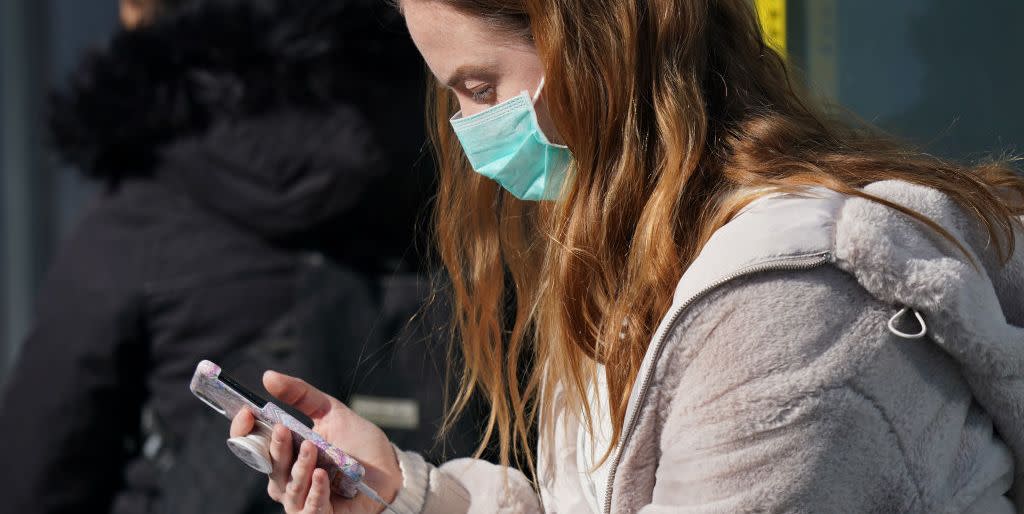Apple and Google Have Created Software That Can Alert Users When Near Someone With COVID-19

While it’s unknown when we'll actually get a vaccine for COVID-19—Oxford University is working on one for September, while Dr. Anthony Fauci is hoping for one by summer 2021—Apple and Google have created software that can potentially slow the spread of the virus. On April 10, the two tech giants officially announced a two-phase project called Bubble, reporting that the first phase would be completed in May. Using Bluetooth technology, Bubble will alert individuals when they have come in contact with a person who has tested positive for COVID-19 while maintaining user privacy on both ends. According to CNBC, Bubble is slated to become available on May 1st.
What Apple and Google are set to release on Friday, though, is not an app just yet but, rather, the APIs to create the app. “Both companies will release application programming interfaces (APIs) that allow contact tracing apps from public health authorities to work across Android and iOS devices, while maintaining user privacy,” Apple announced in a release. “These apps from public health authorities will be available for users to download via their respective app stores.”
Contact tracing can help slow the spread of COVID-19 and can be done without compromising user privacy. We’re working with @sundarpichai & @Google to help health officials harness Bluetooth technology in a way that also respects transparency & consent. https://t.co/94XlbmaGZV
— Tim Cook (@tim_cook) April 10, 2020
How it works
Once the app is launched, users will need to consent to the terms and conditions. Individuals positively diagnosed with COVID-19 will report that diagnosis in the app. With their approval, the beacons belonging to these individuals will be added to the positive diagnosis list, according to Apple. “Once enabled, users’ devices will regularly send out a beacon via Bluetooth that includes a privacy-preserving identifier — basically, a string of random numbers that aren’t tied to a user's identity and change every 10-20 minutes for additional protection,” Apple writes. Phones with the app enabled will constantly be listening for these beacons as well as relaying their own. These beacons will be collected and stored on a user’s device.
At least once per day, the public health authority will download a list of beacons from its servers that have been attached to individuals who tested positive for COVID-19. Then, each device will check its list of stored beacons against the list from public health authorities. If there is a match, “the user may be notified and advised on steps to take next,” Apple writes.
How reliable will it be?
Since the app isn't mandatory, it can't totally stop the spread, but, based on a theoretical contract-tracing model built at Oxford University, the possibility seems promising. “Our models show we can stop the epidemic if approximately 60% of the population use the app,” writes Professor Christophe Fraser of Oxford University’s Nuffield Department of Medicine. Apple explains that users will be able to shut this technology off at any time and can control what data is shared about them. If a user has tested positive for COVID-19, his or her identity will not be shared with other app users.
What's next?
This is just phase one of Apple and Google’s plan. While it remains to be seen how long it will take for public health authorities to release these apps, Apple says phase two “will be available in the coming months.” The second stage will implement this technology into a phone’s operating system, which can be installed as an update so no app is required. However, smartphone users will still have the ability to opt in or out.
Is it private?
Only public health authorities will have access to this technology and their apps must meet specific criteria around privacy, security, and data control, Apple assures. While we wait for this technology to be officially unveiled, it poses a great question: Can technology be just as crucial in fighting the virus as medicine?
Follow House Beautiful on Instagram.
You Might Also Like

